Nowadays it seems that there’s an app for anything and everything. More and more people are turning to apps to manage their health and wellbeing in a cheap and convenient manner. However, many apps — especially those designed for mental health sufferers — are clinically unproven and potentially ineffective. Here’s a list of five mental health apps and online programs that have been clinically validated in peer-reviewed journals — or in other words, actually work.
Feeling lazy and demotivated at your job? Well, you’re not alone. A worldwide Gallup survey found that 85% of employees considered themselves disengaged in the workplace. All this comes with a hefty price; the same survey calculated that disengaged workers cost about $7 trillion in lost productivity each year. So how can this problem be solved?
Through games, of course.
SuperBetter at Work is an immersive digital platform that gamifies tasks at work, making your day-to-day experience less stressful and more fun. In the SuperBetter world, you’re the company hero, beating “bad guys” (or obstacles) and achieving “epic wins” (or completed tasks). Doesn’t that sound fun?
By turning formerly dreary jobs into an exciting game, SuperBetter improves strategic thinking, teamwork, motivation, and mental wellbeing among employees in an entertaining way. Not only that, but it’s also been proven in peer-reviewed literature to significantly reduce anxiety. With SuperBetter, life is indeed a game.
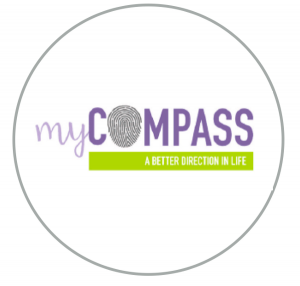 2. myCompass
2. myCompass
myCompass is an interactive online self-help program for people with mild-to-moderate depression, anxiety, and stress. Developed by the Black Dog Institute, the program contains 14 learning modules that teaches scientifically-backed skills meant to introduce positive habits key to overcoming mental health issues. These skills include proven psychological treatments like cognitive behaviour therapy and positive psychology.
myCompass also allows users to track their symptoms on a daily basis, and offers two screeners, or tests, for depression and anxiety. These screeners can help identify specific areas where users would need help and can give some recommendations about possible courses of action. These screeners are so effective that suburban doctors in Australia use them in their initial patient consultations.
Clinical trials have also found that those who use myCompass showed significantly greater improvements in symptoms of depression, anxiety, and stress, and functioned better overall in work and other social settings. And best of all, it’s free!
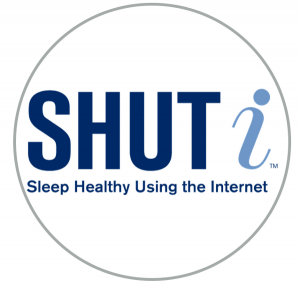 3. SHUTi
3. SHUTi
SHUTi, or Sleep Healthy Using the Internet (pronounced shut-eye) is an online self-help program for people with insomnia. Through six learning modules, SHUTi helps users identify and retrain habits, thoughts, or behaviours that negatively impact sleep. These modules are delivered through engaging stories, quizzes, and other activities personalised to the user’s current sleep patterns and goals. It has been found to significantly reduce the time it takes to fall asleep and the number of awakenings while simultaneously increasing sleep efficiency.
Aside from reducing insomnia, clinical trials have also shown that it improves depression and anxiety symptoms. Insomnia has long been closely associated with depression, with 80% of depressed individuals also suffering from insomnia. A study published in The Lancet found that these improvements persisted for up to six months, making SHUTi as effective as working with a sleep expert.
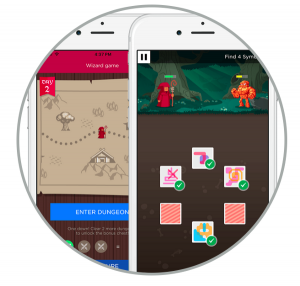
(Image from http://www.peak.net/)
4. Wizard
Schizophrenia is a long-term mental health condition associated with behavioural changes, confused thinking, and cognitive impairments like poor episodic memory. Because of these impairments, people living with schizophrenia often find studying and work difficult.
In response to this, the University of Cambridge developed Wizard, a brain training game. Wizard features various in-game tasks like identifying items in boxes or navigation through rooms to improve the episodic memory and overall cognitive function of people with schizophrenia.
Unlike other brain training apps, Wizard can actually back up its claims. The app was tested by 22 patients with schizophrenia. Ten patients used the app for four weeks, while the other 12 in the control group used traditional memory coaching techniques. By the end of the trial, the test group scored about twice as well as the control group in an initial memory trial. Wizard is now available as a module within the popular brain training app, Peak.
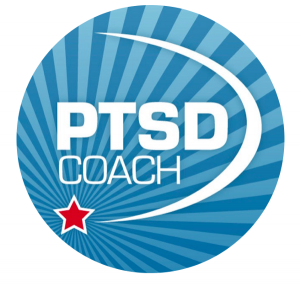 5. PTSD Coach
5. PTSD Coach
Post-traumatic stress disorder (PTSD) is a mental health condition closely associated with war veterans, although it can also affect people who have been exposed to other kinds of traumatic incidents like accidents. PTSD can manifest in a variety of symptoms such as extreme worry or anxiety, intrusive thoughts and memories of the trauma, disconnection from people and reality, feelings of sadness or hopelessness, and insomnia.
In America alone, around 24.4 million people live with PTSD. This spurred the US Department of Defense to develop an app known as PTSD Coach, which provides evidence-based strategies for managing the condition. Not only does the app also provide comprehensive information on PTSD, but it also allows users to track their symptoms and set up a support network of friends and fellow PTSD sufferers.
In a 2014 trial involving 45 veterans, more than 80% of the patients reported improvements in their symptoms after using the app. Another study done during the following year showed similar results, pointing to the clinical effectiveness of PTSD Coach.
Interested in where these innovations would go next? Track their progress through Health Horizon’s Innovation Focus: Mental Health Apps Collection.
Have your own app that could improve mental health? ANDHealth, an Australian-based digital health accelerator, is still accepting applications until May 31st. Selected teams will have $60,000 of support and advisory from leaders in digital health commercialisation.


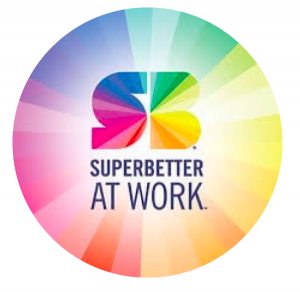 1.
1.